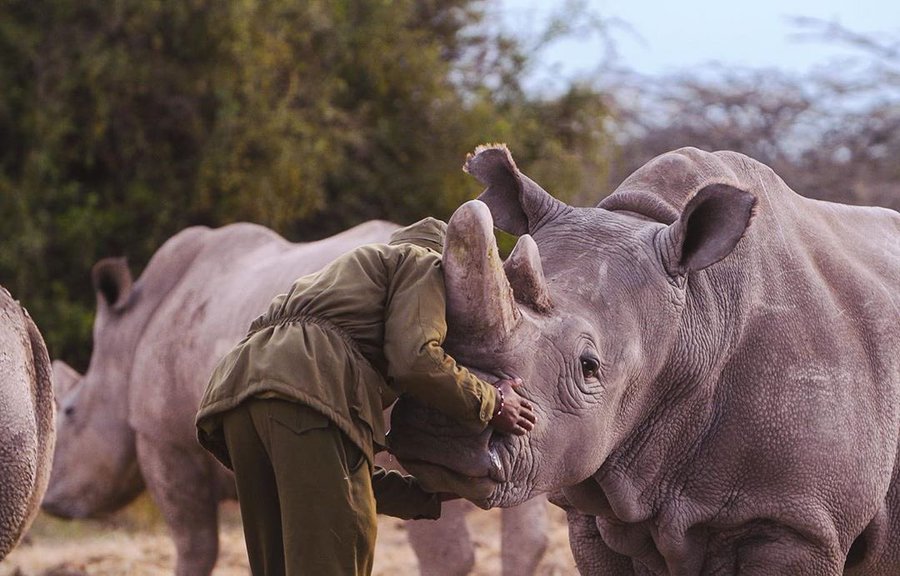
Rhino Poaching in South Africa Cut by Half in 2020
South Africa rhino poaching decreased by almost 53 percent in the first six months of 2020, with 166 animals being killed for their horns, according to figures released by the Department of Environment, Forestry and Fisheries. During the first six months of 2019, a total of 316 rhino had been poached in South Africa. Some […]

South Africa rhino poaching decreased by almost 53 percent in the first six months of 2020, with 166 animals being killed for their horns, according to figures released by the Department of Environment, Forestry and Fisheries.

During the first six months of 2019, a total of 316 rhino had been poached in South Africa. Some have ascribed the drop in stats to COVID-19, although others have argued that the lack of visitors in wildlife areas should have made poaching easier.
“After a decade of implementing various strategies and campaigning against ever increasing rhino poaching by local poachers recruited and managed by crime syndicates, efforts are paying off,” said Barbara Creecy, Minister of the Environment, Forestry and Fisheries. “We have been able to arrest the escalation of rhino losses.”
Creecy said with the COVID-19 lockdown to restrict movement, the decline in rhino poaching compared to the same period last year is striking. The reprieve was specifically welcomed in the Kruger National Park, where during April, no rhino were killed in the Intensive Protection Zone for the first time in almost 10 years.
Between the start of the lockdown on 27 March 2020 until the end of June 2020, a total of 46 rhino were poached across the country. Of these, 14 were poached during April, 13 in May and 19 in June.
In the Kruger National Park, 88 rhino were poached in the first six months of 2020. As the lockdown restrictions have gradually been lifted, rhino poaching incidents have slowly increased.
Between January and June, 38 suspected rhino poachers were arrested in the KNP and 23 firearms confiscated, while 57 suspects were arrested and 18 firearms recovered during the joint SANParks ECI/SAPS operations outside the KNP.
Despite attempts to smuggle rhino horns valued at around R115 million through O R Tambo International Airport in the first two weeks of July 2020, the decrease in rhino poaching can also be attributed to the disruption of the supply chain resulting from the national travel restrictions, including limitations placed on movement across the country.
“The diligence of SARS customs officials and members of the Green Scorpions, which resulted in the consignments being uncovered, and the resulting arrest by the Hawks of a shipping agent, is a prime example of the excellent relationship and teamwork between departments and entities to stamp out the illicit trade in rhino horns and other wildlife products,” Creecy said.
Notwithstanding the severe interruptions of operations during the lockdown period, the performance data relating to rhino-related prosecutions indicated that a total of 23 accused were convicted.
During the reporting period, January to June 2020, the National Prosecuting Authority managed to not only obtain convictions in 15 cases, but maintained a remarkable conviction rate of 100%.
In addition to these high conviction rates, lengthy sentences were also imposed by the courts.
In celebration of World Ranger Day today, the Minister also paid tribute to the men and women whose commitment to protecting the country’s natural heritage, sometimes at the expense of their own safety.
“Our rangers have remained at the forefront of the battle against poaching, despite the National Lockdown, contributing to the decrease in poaching.
